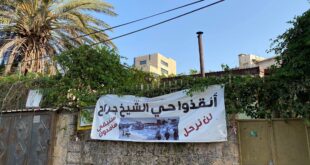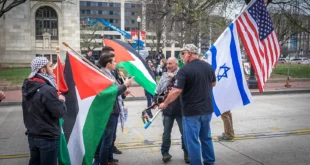Issue 38, Summer/Fall 2024
http://doi.org/10.70090/AMS.38.ASH1
Scroll down for Arabic abstract.
This study critically examines the rhetoric of 2024 U.S. presidential candidates Kamala Harris and Donald Trump in relation to major international conflicts, including the Gaza war, the war in Ukraine, U.S.-Iran tensions, U.S.-China relations, and the Taiwan issue. Employing a dual-method approach, the analysis integrates structural critical discourse analysis to uncover ideological and power structures embedded in the texts, alongside pragmatic discourse analysis to assess the socio-political contexts influencing these narratives. Findings reveal that Trump’s rhetoric is marked by a confrontational tone, employing strategies such as fear appeal, nationalistic assertions, and authority reinforcement. In contrast, Harris’s rhetoric utilizes diplomatic and conciliatory rhetoric, foregrounding themes of multilateralism, global cooperation, and social justice. While Trump frames international engagement through a lens of unilateralism and national security, Harris emphasizes inclusive global alliances and humanitarian responsibility. The analysis also uncovers both candidates’ strategic use of symbolic language and emotionally charged appeals to shape public opinion and electoral identity. These rhetorical divergences reflect broader ideological cleavages in American political discourse and offer insights into the discursive construction of foreign policy agendas during electoral campaigns.
خطاب الصراعات الدولية في إعلام الحملات الانتخابية: دراسة تحليلية نقدية لخطاب مرشحي الرئاسة الأمريكية 2024
الملخص
تحلل هذه الدراسة خطاب مرشحي الانتخابات الرئاسية الأمريكية لعام 2024، بين كل من كامالا هاريس ودونالد ترامب تحليلًا نقديًا بالتطبيق على قضايا الصراعات الدولية المتمثلة في حرب غزة، وحرب أوكرانيا، والصراع مع إيران، والصراع مع الصين، والمسألة التايوانية، وتوظف الدراسة مقاربة بين أسلوبي تحليل الخطاب النقدي البنيوي للكشف عن البنى الأيديولوجية والهيكلية للنصوص، والتداولي لتقييم السياقات الاجتماعية والسياسية التي تؤطر هذه الخطابات، وقد أظهرت النتائج أن ترامب يعتمد على نبرة حادة ومباشرة، ويستخدم استراتيجيات خطابية ترتكز على إثارة المخاوف وتعزيز السلطة، وفي المقابل، تتميز هاريس بخطاب دبلوماسي شامل، يركز على التعاون الدولي والعدالة الاجتماعية، وبينما يركز خطاب ترامب على حلول أحادية الجانب، يميل خطاب هاريس إلى إبراز الشراكات متعددة الأطراف، كما كشفت الدراسة عن استخدام متكرر للغة رمزية واستراتيجيات لغوية تهدف إلى تعزيز التأثير العاطفي لدى الجمهور، ويعكس البحث رؤى متباينة حول السياسة الداخلية والخارجية بين المرشحين؛ مما يوفر أداة لفهم ديناميات الخطاب السياسي وأبعاده الأيديولوجية في مساحة الصراعات الدولية.
 Arab Media & Society The Arab Media Hub
Arab Media & Society The Arab Media Hub





